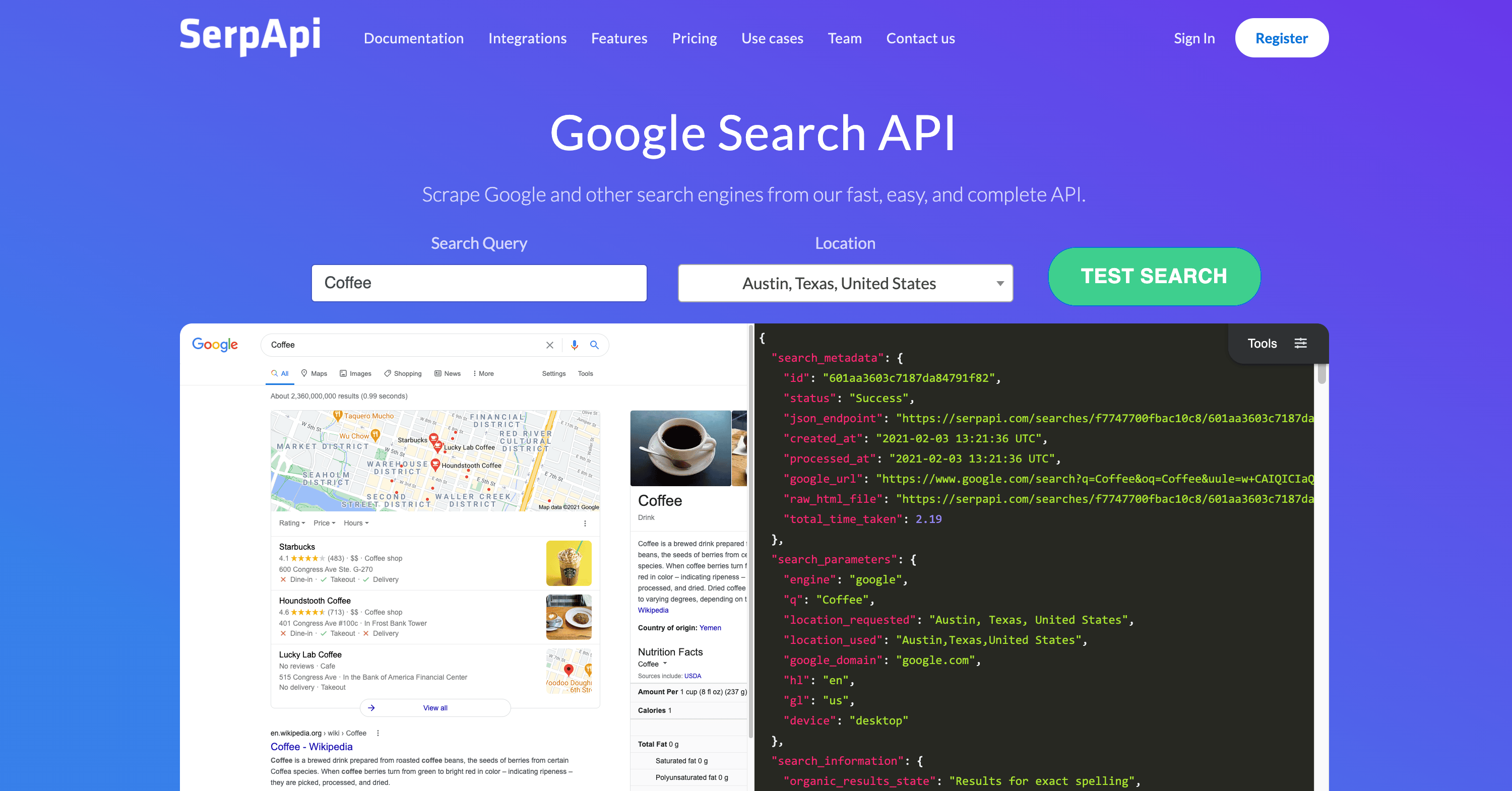Unlocking the Power of Search Data with SerpAPI
 Cloud Tuned
Cloud Tuned
Unlocking the Power of Search Data with SerpAPI
SerpAPI is a powerful and versatile API that provides access to search engine results pages (SERPs) data from major search engines such as Google, Bing, Yahoo, and more. With SerpAPI, developers can retrieve organic search results, paid advertisements, featured snippets, and other valuable insights programmatically, enabling a wide range of applications in SEO, marketing analytics, data analysis, and beyond. In this article, we'll explore what SerpAPI is, its key features, benefits, and how it can empower your projects with valuable search data.
What is SerpAPI?
SerpAPI is an API (Application Programming Interface) that allows developers to retrieve search engine results data in a structured format. By sending HTTP requests to SerpAPI endpoints with specific search queries, parameters, and authentication credentials, developers can access a wealth of information from search engine results pages (SERPs) in real-time. SerpAPI handles the complexities of scraping search engine results, bypasses CAPTCHA challenges, and provides data in a convenient JSON format, making it easy to integrate into applications and workflows.
Key Features of SerpAPI
Comprehensive Search Data
SerpAPI provides access to a wide range of search data, including organic search results, paid advertisements, featured snippets, knowledge graph panels, related searches, and more.
Multiple Search Engines
SerpAPI supports multiple search engines, including Google, Bing, Yahoo, Baidu, Yandex, and DuckDuckGo, allowing developers to retrieve search data from different sources based on their needs.
Real-time Results
SerpAPI delivers search results data in real-time, enabling developers to access the latest information from search engine results pages (SERPs) instantly.
Rich Data Formats
SerpAPI provides search data in structured JSON format, making it easy to parse, analyze, and integrate into applications, dashboards, and reports.
Customizable Queries
Developers can customize search queries using various parameters such as search keywords, location, language, device type, and search engine preferences to retrieve relevant and targeted search results.
Scalable Infrastructure
SerpAPI is built on a scalable and reliable infrastructure that can handle large volumes of requests and deliver search data with low latency and high availability.
Benefits of Using SerpAPI
Access to Valuable Insights: SerpAPI provides access to a wealth of search data, enabling developers to gain valuable insights into search trends, competitor analysis, keyword rankings, and more.
Automation and Efficiency: By automating the retrieval of search data with SerpAPI, developers can save time and effort compared to manual scraping methods, allowing them to focus on analysis and decision-making.
Integration Flexibility: SerpAPI can be easily integrated into various applications, tools, and workflows, including SEO monitoring platforms, marketing analytics dashboards, content optimization tools, and more.
Reliability and Scalability: SerpAPI's scalable infrastructure ensures reliable performance and availability, even under heavy load and peak traffic conditions.
Conclusion
SerpAPI offers a powerful and versatile solution for accessing search engine results data programmatically, empowering developers to unlock valuable insights and drive informed decision-making in SEO, marketing, and beyond. Whether you're building an SEO tool, analyzing search trends, or monitoring competitor activity, SerpAPI provides the tools and resources you need to succeed.
If you're interested in learning more about SerpAPI or exploring how it can enhance your projects with valuable search data, we invite you to leave a comment below. Share your thoughts, experiences, and questions about SerpAPI, and don't forget to subscribe to our blog newsletter for regular updates and more content on similar topics.
Subscribe to my newsletter
Read articles from Cloud Tuned directly inside your inbox. Subscribe to the newsletter, and don't miss out.
Written by
